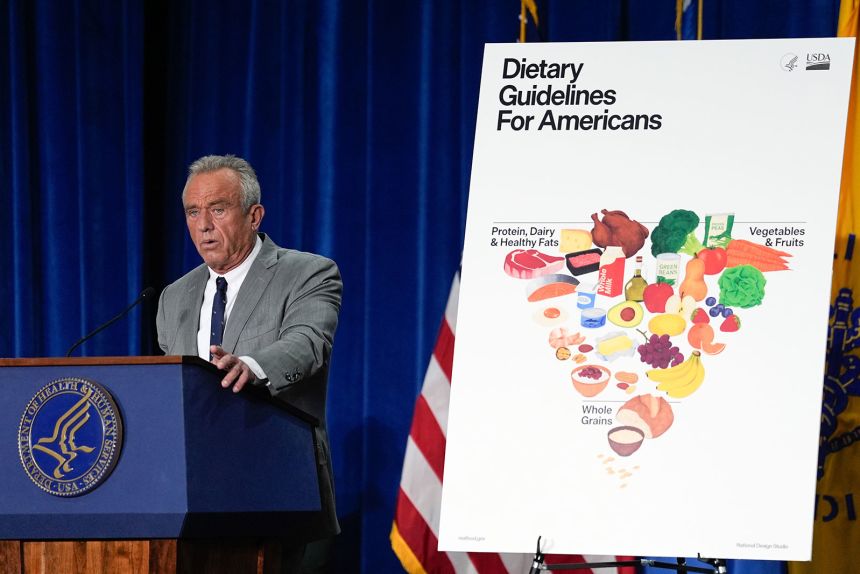Understanding the Unique Risks in Florida’s Restaurant Industry
Florida’s vibrant restaurant scene, from beachside cafes to bustling urban eateries, is a vital part of the state’s economy. The Sunshine State attracts millions of visitors each year, fueling a diverse and competitive hospitality market that thrives on culinary innovation and exceptional customer service. However, behind the energy and opportunity lies a landscape filled with complex operational challenges. Running a restaurant in Florida comes with a unique set of risks ranging from natural disasters to kitchen accidents and customer liabilities that can threaten even the most well-established businesses.
The state’s subtropical climate, for instance, presents a real risk of hurricanes, floods, and other weather-related disruptions that can shut down operations with little notice. Additionally, restaurants must manage hazards such as foodborne illness outbreaks, employee injuries, liquor liability exposures, and claims stemming from slip-and-fall incidents. These risks are not just hypothetical; they’re common occurrences that can lead to lawsuits, financial losses, and regulatory penalties.
For restaurant owners, bar managers, and hospitality professionals, understanding these risks is the first step toward long-term protection and success. Without a proactive strategy in place, a single incident could derail months or years of hard work.
One of the most critical components of safeguarding a business is a thorough risk assessment. These evaluations identify vulnerabilities that are often overlooked in day-to-day operations such as improper food handling procedures, outdated fire suppression systems, or gaps in employee training. More importantly, they help ensure that businesses are appropriately insured, compliant with local health and safety regulations, and financially protected against unexpected disruptions.
A strategic risk assessment not only supports business continuity but also strengthens credibility with stakeholders, including lenders, investors, and insurance providers. It can mean the difference between a temporary setback and a permanent closure for businesses needing general liability insurance for restaurants in Florida. Taking the time to conduct a detailed assessment allows hospitality operators to mitigate threats in advance and secure the comprehensive coverage they need to stay competitive and resilient in a high-risk, high-reward industry.
The Role of Risk Assessments in Insurance Planning
Risk assessments serve as the foundation of any comprehensive insurance strategy. For Florida’s restaurant operators, who juggle fast-paced environments filled with staff, customers, high temperatures, sharp tools, alcohol service, and extensive inventory systems, there’s virtually no margin for error. Every component of daily operations presents a potential liability, which makes proactive risk management not just a smart business practice but a necessity.
This is why investing in general liability insurance for restaurants in Florida supported by a detailed assessment is essential. A comprehensive insurance policy becomes significantly more effective when it’s guided by a thorough understanding of a business’s specific risks. Without this, restaurant owners may unknowingly face critical coverage gaps or pay for protections that don’t align with their actual exposures.
Identifying Core Areas of Exposure
A professional risk assessment goes beyond a surface-level checklist. It takes a close look at multiple dimensions of a restaurant’s operation, uncovering areas of vulnerability that can lead to financial loss or legal issues if not properly addressed:
Fire and Kitchen Hazards
Commercial kitchens are inherently high-risk due to the constant use of open flames, fryers, grills, and high-voltage appliances. A risk assessment examines ventilation systems, the maintenance of fire suppression equipment, storage of flammable materials, and staff training on fire safety protocols. Proper evaluation here helps ensure that policies not only meet code but also support insurance eligibility and claims responsiveness.
Customer Injury Liability
Restaurants open their doors to the public every day, creating liability exposures in every square foot. Assessments should focus on entryways, restrooms, dining areas, and parking lots identifying risks for slip and fall accidents, foodborne illness from improper handling or refrigeration, and alcohol-related incidents that may result in harm to guests or third parties. These insights directly inform the scope and structure of general liability insurance for restaurants in Florida, allowing businesses to better safeguard customer interactions.
Employee Safety
Back-of-house operations often expose employees to sharp knives, boiling liquids, and fast-moving environments. Common injuries include burns, cuts, strains, and repetitive motion injuries, all of which can lead to costly workers’ compensation claims. A risk assessment identifies gaps in protective gear use, training programs, ergonomic design, and shift protocols, helping owners improve both safety and insurance preparedness.

Property Protection
From roof integrity to plumbing, flooring, and refrigeration units, a restaurant’s physical space and equipment are fundamental to daily business. Risk assessments evaluate structural soundness, fire prevention features, and the facility’s ability to withstand Florida’s volatile weather patterns, including hurricanes and flooding. Identifying weaknesses in these areas can inform property coverage adjustments, reduce downtime after storms, and prevent disputes during claims processing.
Regulatory Compliance
Florida’s restaurants must adhere to strict health and safety codes governed at the local, state, and federal levels. A detailed risk assessment checks whether a business is up to date with health inspections, food safety certifications, ADA accessibility requirements, and alcohol licensing rules. Falling short on any of these fronts not only increases the risk of fines or closure but can also impact the availability or cost of general liability insurance for restaurants in Florida.
By exploring these core areas, restaurant owners gain a clearer picture of where they may be overexposed and which types of insurance coverage can close those gaps. A well-executed risk assessment is not a one-time task, but a continuous process of identifying, addressing, and adapting to the ever-changing challenges of operating in Florida’s high-stakes hospitality landscape. With this proactive mindset, insurance becomes a tool for empowerment, not just compliance.
Why Florida Restaurants Face Heightened Insurance Needs
Florida restaurants are uniquely impacted by their geographic and economic conditions. Unlike other regions, Florida’s hospitality industry is shaped by a convergence of environmental risks, economic volatility, and massive seasonal swings in customer volume. These factors combine to create a high-risk operating environment that demands robust, well-tailored coverage including general liability insurance for restaurants in Florida as a cornerstone of financial stability and business continuity.
The Hurricane Factor
Storm season in Florida is long, active, and often destructive. Running from June through November, the Atlantic hurricane season poses a persistent threat to restaurants across the state, especially those located in coastal areas like Miami, Tampa, Fort Lauderdale, and the Florida Keys. These establishments are at constant risk of:
- Flooding from storm surges or torrential rain
- Wind damage to roofs, signage, windows, and outdoor dining areas
- Power outages that compromise refrigeration and food safety
- Extended closures due to mandatory evacuations or infrastructure repair
Without adequate commercial property insurance and business interruption coverage, a single hurricane can devastate revenue streams, damage critical equipment, and stall reopening efforts for weeks or even months. Many businesses never recover from a major storm-related loss, which is why Florida restaurant owners must view hurricane preparedness as a key insurance planning priority.
In tandem with property policies, general liability insurance for restaurants in Florida also plays a vital role during hurricane season, particularly in addressing third-party claims arising from hazardous post-storm conditions, such as injuries from debris or water-damaged flooring on the premises.
Tourism and Customer Volume
Florida is one of the top travel destinations in the United States, welcoming tens of millions of visitors annually. This level of tourism supercharges foot traffic in local restaurants, especially in popular hotspots like Orlando, Naples, Sarasota, and the Panhandle’s beach communities. While this influx drives economic opportunity, it also dramatically increases liability exposure.
More guests mean more chances for accidents, including:
- Slip and fall injuries caused by spills, rainwater, or crowded entryways
- Foodborne illnesses tied to high-volume food preparation and turnover
- Alcohol-related incidents, particularly in bars and waterfront venues
- Allergy reactions or contamination issues, which can trigger medical emergencies
These customer-related risks make general liability insurance for restaurants in Florida an essential layer of protection. It covers legal defense, settlements, and medical costs stemming from accidents or negligence claims, helping restaurants avoid costly litigation and reputational damage.
Moreover, during peak tourist seasons such as spring break, summer vacations, and holidays, restaurants may hire seasonal staff or operate under heightened pressure, increasing the likelihood of oversight and operational missteps. A comprehensive liability policy backed by a strong risk management plan ensures that even in the busiest months, business owners can operate with confidence.
Key Insurance Coverages Backed by Risk Assessments
An accurate risk assessment doesn’t just spotlight vulnerabilities it aligns a restaurant’s unique risk profile with the correct insurance policies. By evaluating operational, environmental, and regulatory exposures, a professional assessment serves as a roadmap for selecting coverage that not only meets minimum requirements but also fortifies long-term business resilience. Several types of coverage are typically recommended based on the results of a detailed risk analysis, each serving a specific protective function.
General Liability Insurance for Restaurants Florida
This is the cornerstone of restaurant protection and the first line of defense for most hospitality businesses. General liability insurance for restaurants Florida covers a wide range of third-party claims, including:
- Customer injuries from slips, trips, or falls within the dining area, restrooms, or entryways
- Food-related incidents, such as illness or allergic reactions caused by improper handling, contamination, or labeling errors
- Third-party property damage, such as accidental harm to adjacent storefronts or customer belongings
- Legal defense costs associated with claims, settlements, or judgments stemming from alleged negligence
A well-executed risk assessment highlights specific hazards like poor lighting, slick flooring, tight walkways, or insufficient signage that may increase the risk of claims. These insights help insurance brokers and business owners tailor their general liability insurance for restaurants in Florida to reflect the true exposure level. For example, a restaurant located near a beach with wet foot traffic will likely need broader premises liability coverage than an inland bistro with carpeted floors and slower turnover.
Moreover, the risk assessment may reveal recurring issues such as a history of customer complaints or past incidents that can be proactively addressed through enhanced safety protocols, employee training, and targeted policy endorsements. This level of customization can lead to better premium rates, fewer exclusions, and smoother claims experiences when an incident occurs.
In today’s high-stakes operating environment, especially in a state as dynamic as Florida, general liability coverage isn’t just a legal safeguard, it’s a strategic investment in business continuity and reputation management. And when that coverage is directly informed by a thorough, data-backed assessment, it becomes far more than a policy; it becomes a shield against the unpredictable.
Workers’ Compensation Insurance
Behind every successful restaurant is a hardworking team from chefs and prep cooks to servers, bartenders, and dishwashers. Yet this workforce operates in an environment filled with physical hazards. Hot surfaces, sharp tools, slick floors, heavy lifting, and fast-paced service routines all contribute to a high probability of on-the-job injuries. That’s why workers’ compensation insurance is a vital component of any Florida restaurant’s risk management plan.
Risk assessments provide the data-driven foundation necessary to select appropriate coverage limits and implement preventive strategies. By evaluating historical claims data, businesses can identify patterns such as recurring back injuries from improper lifting techniques or frequent burns during rush hours that signal a need for updated training or safer workflows.
Commercial Property Insurance
The physical infrastructure of a restaurant, its kitchen equipment, furnishings, point-of-sale systems, refrigeration units, signage, and even the building itself is critical to day-to-day operations. When disaster strikes, whether through fire, vandalism, or storm-related damage, these tangible assets can be extremely costly to repair or replace. Commercial property insurance provides essential protection that enables restaurants to recover quickly and minimize operational downtime.
A thorough risk evaluation plays a pivotal role in tailoring this coverage to the specific needs of each business. By assessing the condition, value, and function of physical assets, insurers can determine the right policy limits and identify areas that may require additional safeguards. These evaluations typically examine:
- Maintenance routines: Are cooking appliances cleaned and serviced regularly? Are HVAC, electrical, and refrigeration systems inspected on schedule?
- Security measures: Is the property equipped with fire alarms, surveillance cameras, intrusion detection systems, or sprinkler systems?
- Past incidents: Has the restaurant experienced previous fire damage, theft, or property-related claims? If so, were the root causes addressed?
For example, a restaurant that operates deep fryers and high-BTU stoves without a modern fire suppression system may be considered higher risk and could face higher premiums or even coverage exclusions unless improvements are made. On the other hand, establishments that invest in routine upkeep, fire safety compliance, and robust security measures may qualify for lower rates or expanded protection.
Business Interruption Insurance
In the fast-paced world of hospitality, even a short-term closure can have long-term consequences. Whether caused by a hurricane, electrical fire, equipment failure, or forced evacuation, unexpected downtime can stop revenue cold while bills, payroll, and fixed expenses continue to pile up. That’s where business interruption insurance steps in, providing critical financial relief to help restaurants survive and recover.
This form of coverage replaces lost income and covers essential operating expenses such as rent, utilities, taxes, loan payments, and employee wages during a covered period of closure. It can even help pay for temporary relocation or marketing to announce a reopening, depending on policy terms.
Risk assessments are crucial in determining the appropriate structure and limits of business interruption coverage. These evaluations explore key factors such as:
- Business continuity capacity: Can the restaurant continue operating at partial capacity (e.g., via delivery or catering)? Is there an alternative site for temporary relocation?
- Dependency analysis: How reliant is the business on a specific location, vendor, or piece of equipment? What happens if any of these are out of commission?
- Recovery time estimates: Based on infrastructure, supply chains, and staffing availability, how long would it take to reopen after a disruption?
In Florida, where natural disasters are a recurring threat, business interruption insurance is not optionally a financial lifeline. A hurricane might not destroy a building, but it can knock out power for days or flood access roads, rendering a restaurant unusable even if structurally intact. The right policy, informed by a tailored risk assessment, ensures owners are compensated during this critical period so they can focus on recovery instead of survival.
Importantly, business interruption coverage must be carefully aligned with the terms of property insurance, as most policies require that the interruption stem from a covered property loss. Risk professionals help identify potential gaps or limitations such as waiting periods, coverage triggers, and duration caps that may affect how and when benefits are paid.

Common Pain Points Solved by Risk Assessments
Operating a restaurant in Florida isn’t just about delivering great food and service, it’s also about managing complex risks that can threaten profitability, compliance, and long-term stability. Many restaurant owners and managers find themselves overwhelmed by the technicalities of insurance, frustrated by rising premiums, or blindsided by claims they weren’t fully prepared for. Fortunately, a well-executed risk assessment goes far beyond identifying hazards; it directly addresses some of the most common and costly pain points in the industry.
Insurance Confusion
Navigating the insurance landscape can be overwhelming. With so many policy types, coverage exclusions, and technical terms, it’s easy for business owners to either over-insure or under-protect their operation. Risk assessments simplify this process by offering clear explanations of what coverage is needed and why, especially when it comes to essentials like general liability insurance for restaurants in Florida. By aligning policy recommendations with operational realities, assessments remove guesswork and help owners invest in coverage that truly matches their risk exposure.
Regulatory Requirements
Health codes, alcohol licenses, OSHA standards, ADA compliance, and employment laws are just a few of the regulatory frameworks Florida restaurants must navigate. Falling short can lead to costly fines, forced closures, or denied insurance claims. A risk assessment serves as a compliance check, verifying that procedures, facilities, and documentation meet local, state, and federal regulations. It also highlights areas where proactive improvements such as updating employee training manuals or improving kitchen hygiene protocols can reduce regulatory friction and enhance insurability.
Risk Exposure
No two restaurants share the same risk profile. A quick-service café in downtown Orlando faces different challenges than a beachfront seafood grill in Naples. Risk assessments help identify and prioritize threats specific to the restaurant’s size, layout, location, hours of operation, and customer demographics. For example, establishments near nightlife districts may have elevated alcohol liability risks, while those in hurricane-prone areas require robust property and business interruption strategies. By recognizing these distinctions, restaurant owners can make smarter insurance decisions that reflect their unique environment.
Staff Claims
Workplace injuries and employee-related claims are among the most frequent and financially damaging liabilities for restaurants. Burns, cuts, slips, strains, and harassment allegations can lead to expensive workers’ compensation or employment practices liability claims. Risk assessments evaluate staff training practices, incident history, shift structure, and even staffing levels to identify patterns that contribute to these incidents. With these insights, restaurants can implement risk-reducing strategies such as more comprehensive onboarding, updated safety protocols, or better ergonomics that not only reduce future claims but also help control premiums.
Property Protection
Many Florida restaurant owners underestimate their exposure to structural risks until disaster strikes. Whether it’s a fire sparked by a grease trap, storm damage from a hurricane, or theft after hours, physical property losses can bring operations to a halt. Risk assessments offer a detailed analysis of structural safety, evaluating everything from electrical systems and fire suppression equipment to weatherproofing and building access controls. This level of insight helps ensure that property insurance is not only sufficient in coverage limits, but also structured to respond quickly when damage occurs.
By translating these pain points into actionable strategies, restaurant owners gain more than just better insurance, they gain clarity, confidence, and control. Through ongoing assessments and insurance alignment, Florida’s restaurant professionals can spend less time worrying about “what ifs” and more time building resilient, thriving businesses.
The Value of Customized Insurance Solutions
There is no one-size-fits-all insurance solution. Each restaurant has unique operational elements that shape its risk profile from live entertainment and late-night hours to open kitchens and delivery services.
A risk assessment paves the way for insurance customization:
- Policy limits and deductibles are matched to actual risk levels.
- Coverage types are added or adjusted based on operational specifics.
- Premium costs are aligned with risk mitigation efforts, often lowering overall rates.
Florida restaurant owners who engage in proactive risk assessment strategies not only protect their operations but also benefit from more favorable insurance terms, especially when securing general liability insurance for restaurants in Florida.
Staying Ahead of Emerging Risks
The hospitality industry is evolving. With the rise of ghost kitchens, online ordering, and gig-economy delivery drivers, new risk factors are constantly emerging. Risk assessments help restaurant operators stay ahead:
- Cyber liability for POS system breaches
- Liquor liability as laws around alcohol service evolve
- Delivery-related auto coverage
- Pandemic-related operational disruptions
Regular updates to general liability insurance for restaurants Florida and associated policies help restaurants remain protected against the unexpected.
How Risk Assessments Drive Better Claims Outcomes
When insurance claims arise, documentation and preparedness matter. A prior risk assessment provides:
- Evidence of due diligence: Demonstrates that the business took reasonable steps to prevent loss.
- Claims support: Establishes baseline conditions and asset valuations.
- Faster resolution: Insurers are more likely to expedite claims with a documented risk profile, especially when backed by general liability insurance for restaurants in Florida.
Florida restaurants that conduct assessments regularly experience smoother claims processes and less post-incident disruption.
Taking the First Step Toward Protection
For Florida restaurants, cafés, bars, and entertainment venues, investing in a professional risk assessment is more than a best practice; it’s a strategic imperative. It lays the groundwork for sustainable growth, legal compliance, and operational resilience with the help of general liability insurance for restaurants in Florida.
Hospitality professionals ready to evaluate their exposure, explore custom insurance strategies, or enhance existing coverage should contact USA CIS for consultations, request a risk assessment, or explore custom restaurant insurance plans today.
Authoritative Resources:





